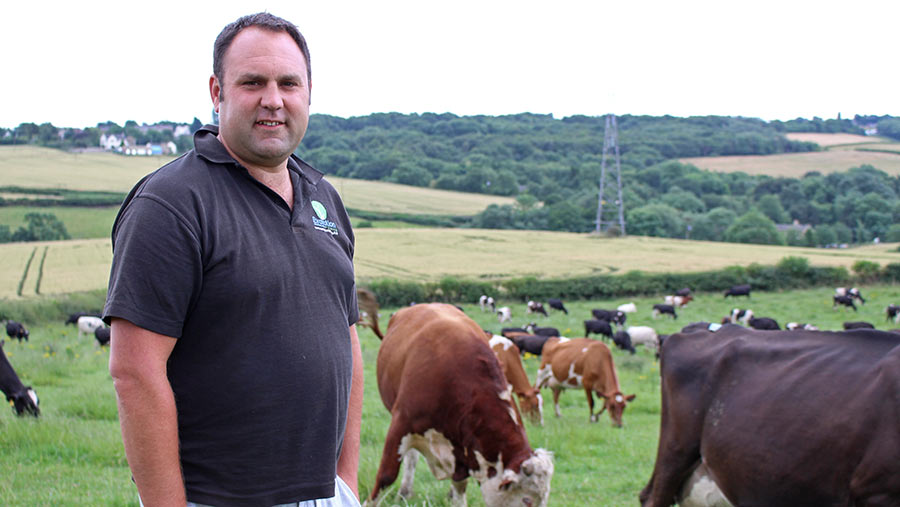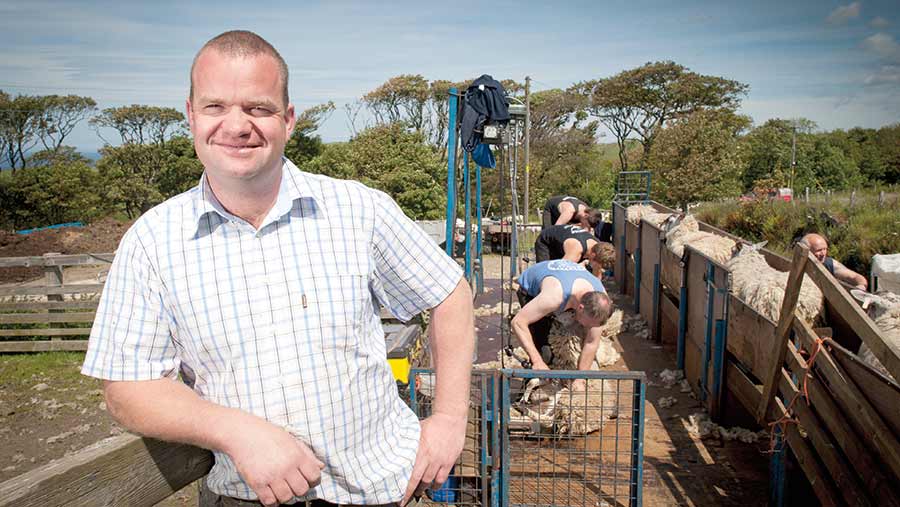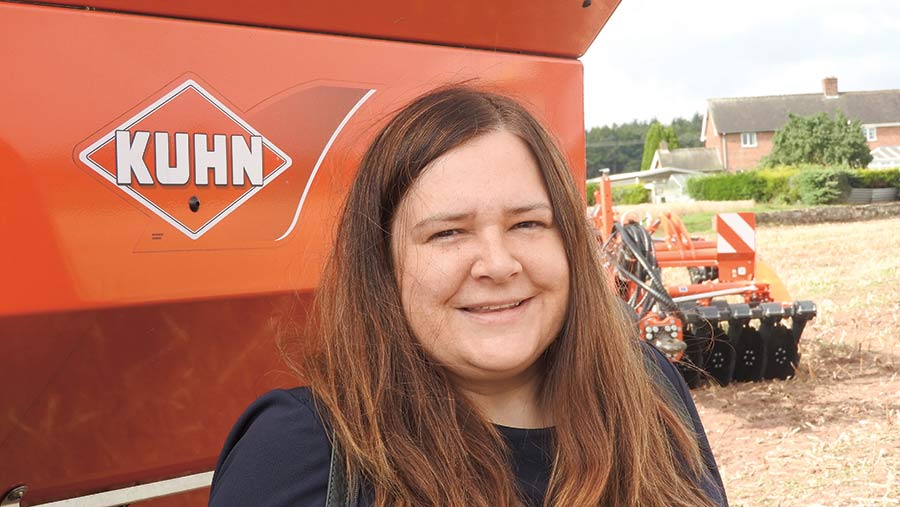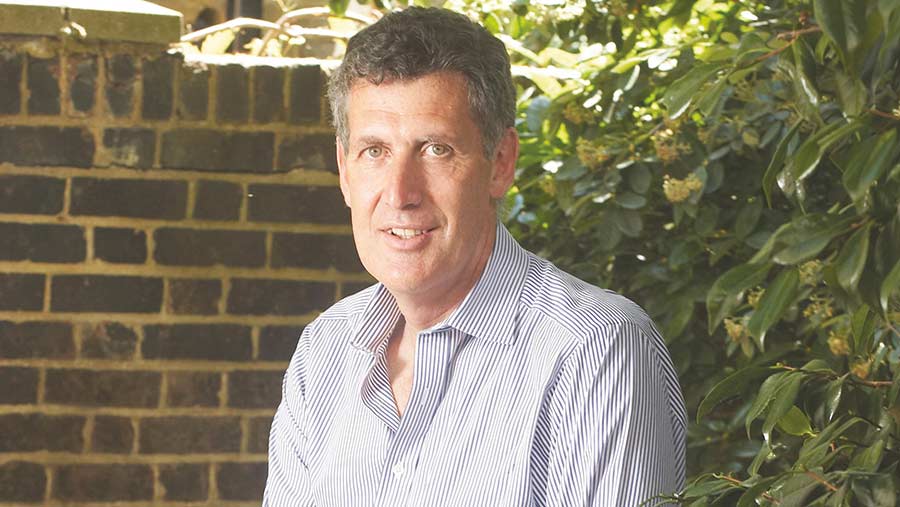Careers advice from seven top figures in the farming industry
Who better to ask for careers advice than people who are already operating at the highest level in the agricultural industry?
We ask a range of senior people across the food and farming sector what advice they wish they had been told when starting out.
See also: The A to Z of careers in agriculture
Get out and meet the best
Tom Rawson, director, Evolution Farming
My advice would be to network and be influenced and mentored by the right people as early as possible in your career.
It was only when I joined a dairy discussion group when I was 24 and was awarded a Nuffield Farming Scholarship when I was 26 that this really started to happen for me.
Meeting some of the best farmers in the UK and abroad certainly changed my opinion on my business and personal life.
My biggest regret would be I didn’t have the confidence to work abroad when I left college.
The majority of people I have spoken to about their experiences used it as a springboard to grow as a person, whether milking cows in New Zealand or driving a combine in the US.
Since I have done my Nuffield, I have been to New Zealand four times and other countries as well – each time meeting some amazing people and making lifelong friends.

Tom Rawson
Bag yourself a mentor
Christine Tacon, Groceries Code Adjudicator and chair of MDS graduate training scheme

Christine Tacon © Dave Stock
Get a mentor – someone to talk to and to help you plan your career. Almost every job I have had I was either offered or headhunted for.
I only started planning my career, and applying for jobs, five years ago. And even now, I would like a mentor to talk to about what to do next.
The most enduring impact you will have is on other people. As a boss, there is nothing more rewarding than seeing employees make the most of themselves and achieve things they didn’t think they could do.
Finally, you will learn as much in business by watching others as by doing it yourself. What inspires you about other people and what you don’t like are equally important in choosing how you want to be.
Challenge the impossible
Charlie Russell, estate manager, Glenapp Estate
Have the moral courage to challenge the “impossible”. As I see it, I was lucky in that I didn’t inherit a farm and the golden handcuffs that sometimes come with it.
My parents encouraged me to think independently and act with conviction and passion.
They encouraged me to challenge whether something is impossible just because it is difficult, a challenge on the norm, different to how father did it or because of a worry of what the neighbours may think.
My 10-year-old daughter now says: “Nothing is impossible, Daddy. The word says ‘I’m possible’.” Fantastic, isn’t it?
It is also vital to understand what motivates you. Don’t be fine. Be fantastic or be horrendous – but enjoy what you’re doing or change.
To be better than average we need to have the personal honesty to judge our strengths and weaknesses against those better than us, understand the differences and be willing to change. If we don’t like change, we may find we dislike irrelevance even more.

Charlie Russell © Jim Varney
Get your passport out
Siân Pritchard, managing director, Kuhn Farm Machinery
Take every opportunity thrown at you to gain experience and don’t be scared to start at the bottom.
Treat every experience as a building block which will help you access that dream job or career and also look at what you can learn from other people’s experiences.
Consider your transferable skills – as a 20-year-old, you won’t have masses of professional experience to list on your CV, but don’t underestimate the skills you may have learned from Young Farmers or other extra-curricular activities.
Finally, be prepared to leave home, learn a language, and even work abroad. It’s a great addition to your CV and makes it easier to market yourself.

Siân Pritchard
Abandon your comfort zone
David Fursdon, chairman, Beeswax Dyson Farming
In my 20s I was working in London and wanted to get out of the city. What I didn’t know was anything about farming and rural careers. Where do you find out what is possible?
Brightcrop is a start, so try the website. Also, try the universities and colleges that specialise in rural courses.
Above all, speak to someone in the industry – a good and innovative farmer; an auctioneer; a land agent or someone running a rural business. I didn’t and I regretted it. You need guidance and ideas.
If you are already in the industry, don’t assume that everything you hear is right. It may be out of date or old-fashioned and you need to challenge it.
Once you start, always push yourself out of your comfort zone. It may mean going on a course, speaking in public, growing a new crop or changing jobs.
It’s scary at first but it teaches you so much and eventually, it means that you can challenge what others are saying. You’ll learn that you can do things differently – and often better.

David Fursdon © Malcom Case-Green
Invest in your own development
Phil Bicknell, Market Intelligence director, AHDB
My first proper job after university had a relatively significant training and skills budget attached to it. At the time, I didn’t appreciate the value of this (or the uniqueness).

Phil Bicknell David Fursdon © Dave Stock
It was a sage person who advised me to spend it wisely, telling me the opportunity to invest in your skills and knowledge always needs careful thought and consideration.
It taught me a few useful lessons I’ve taken with me throughout my career.
The first is to always take responsibility for your own development, and generate the opportunity to invest in yourself.
The second is to challenge yourself to broaden your skills and knowledge. For me, that led to studying for a couple of professional qualifications at various points in my career.
And finally, once in a while, make sure you’re getting some new ideas. It might come from attending conferences, going and seeing for yourself how others do things, or simply spending half an hour listening to a podcast. Wherever it’s from, inspiration and fresh thinking are vital.
Understand the value of teams
Graham Wilkinson, senior director member relations, Arla UK
I wish someone had told me you can achieve so much more by working together as a team than you can ever achieve as an individual.
This has played out throughout my career in which I have been fortunate enough to hold a number of roles on farm, at Arla and Tesco, in dairy and across other sectors.
This experience has really opened my eyes to the supply-chain challenges and, more importantly, the opportunities that can be achieved by everyone working together.
An example of this is the industry initiatives that have been developed to support young farmers and those that are keen to learn by sharing best practice and knowledge.
I am a firm believer we need to work collaboratively throughout the whole supply chain so we can continue to deliver fantastic, innovative dairy products that consumers require.
Alone we can do so little but together we can do so much.
